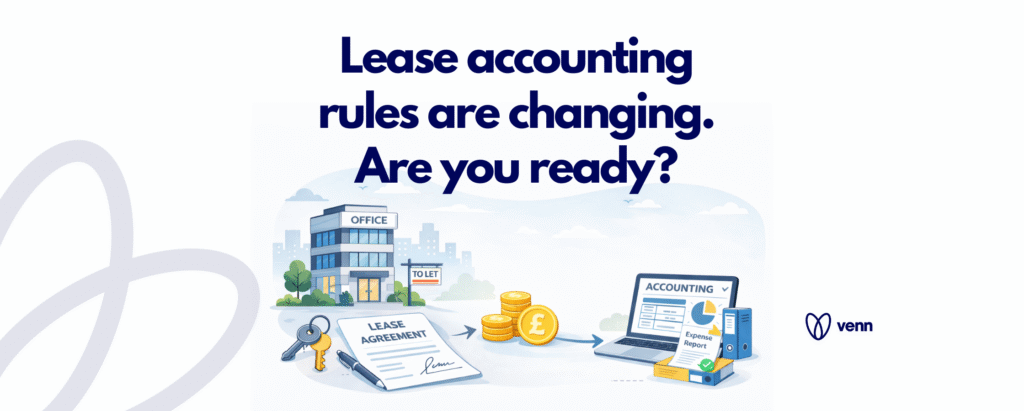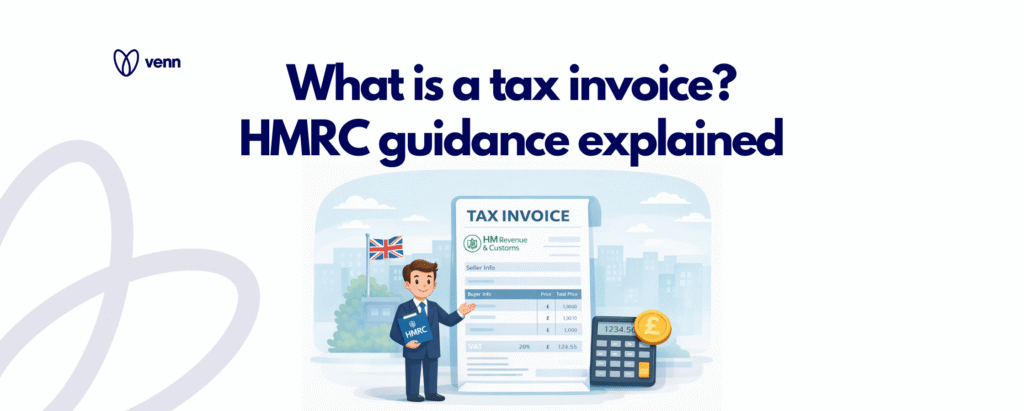Accountants have historically bore an unfair reputation as bean counters, people who will only tell you how much money is going out and how you can hold on to more of it.
While this is something an accountant can do, their true roles utilise infinitely more wisdom.
Readers who have sought out the services of a chartered accountant in the past will already know just how much one can do for your business, but for those looking to learn; here we break down the duties, roles, goals, and outcomes you can expect from having one on your side.
So, what is a chartered accountant?
What is a chartered accountant and what do they do?
A chartered accountant is an accountant who has obtained membership of a professional body with a respected reputation.
This requires a high level of study and experience within the industry.
Chartered accountants are expected to abide by a strict code of conduct, both professionally and ethically, and many accountants will train for their qualifications alongside performing their role as an accountant.
Chartered accountants can be found on the boards of many FTSE 100 companies, providing crucial guidance and information in both short and long-term planning.
In short, they’re super accountants!
There are several routes to qualifying, but each produces in-depth knowledge and proven competency in areas such as ethical and professional conduct, business and leadership skills, and strategic understanding.
When performing their roles, chartered accountants handle a range of financial administration tasks, including but not limited to:
- Handling invoices
- Speaking with auditors and assisting with reports
- Managing budgets
- Providing financial advice
- Filing corporation tax returns
- Filing VAT returns
- Managing statutory accounts
- Managing payroll
- Detecting and preventing fraud
- Manage junior colleagues
While these are all tasks an accountant will happily tackle for you, the point of a chartered accountant is that their experience positions them to contribute much more.
For example, they can offer invaluable insight into the crucial aspects of your business.
They can identify issues in advance of them occurring, and help you plan for them.
They can also advise on resources you may not have even known you had access to.
Why use a chartered accountant?
The specifics of what a chartered accountant can do for you will depend on your business and the sector you operate within, but rest assured their general business acumen will likely serve you well.
Startups may find the help of a chartered accountant a very useful tool. The nature of such businesses requires them to build momentum and stay the course smoothly, meaning planning early steps needs to be done with intelligence and consideration.
Startups need to know how they will make money, and they need to convey confidence in their cash flow to potential investors or lenders. They also need to be able to pay off any early debts and maintain profitability as they gain pace, not fall prey to early stumbles and setbacks.
A chartered accountant can help startups by identifying key points of consideration, such as where overheads will occur and how the business can be sure of its revenue streams.
With revenue forecasts created by a trustworthy accountant, a startup can be much more assured in its path and approach the right people with essential information.
Chartered accountants know how to ask the right questions; Is a business ready to pay its employees? Does it need to be VAT registered, and does anybody working there understand unit economics? Having someone to ask these questions early minimises the chances of them becoming hurdles later down the line.
Chartered accountants for SMEs can similarly lend support and get the basics in order, so that the company can focus on its growth and its next steps forward.
Cash flow management, bookkeeping, budgeting and annual accounts are all aspects that a chartered account can handle, taking the load off of the leadership and ensuring that DIY accounting won’t cause any nasty surprises in the near future.
Your chartered accountant may also be able to provide management accounting. Management accounts are separate from your annual accounts, and are instead produced monthly or quarterly.
They’re a set of financial reports that monitor the performance of your business and grant insight into how the business should steer into any upcoming challenges. Of course, the accountant can provide their own insight to go with these reports, giving you a 360-degree view of your finances and what can be done about them.
Tech companies may take interest in a slightly different set of services from a chartered accountant. Accounting for tech companies can yield valuable streams of funding for tech startups looking to save costs and find some extra cash.
For instance, as a tech company, you may be able to claim R&D tax credits through HMRC. However, this requires an accurate record of what is being spent on eligible R&D, which a chartered accountant will know and help you to make note of accordingly.
You could be able to claim back for consumables, software licenses, even salaries and contract work.
There is documentation that must be present with a claim, and the claim itself must fall within two years of the end of your current accounting period. Having a chartered accountant to oversee this process will of course make the whole process smoother and more efficient.
Another benefit to chartered accounting for tech companies is that much work in the tech sector generates intangible assets. These could include branding, software, and patents. These must nevertheless be valued correctly. A chartered accountant knows how to turn these intangible assets into maximised gains.
Accounting for online retail businesses could present one of the biggest opportunities for a chartered accountant to relieve some headaches. This could take the form of helping to manage inventory and providing valuable insights on turnover of your products. It could also be in the form of dealing with unpaid invoices and considering options for debtors, or helping with point-of-sale technology and staff scheduling.
A chartered accountant can also help you figure out if you need to be registered for VAT, and whether you need to familiarise yourself with issues around imports, exports, and customs.
All of this is just scratching the surface of what a chartered accountant can do for many different businesses and sectors. Their experience and insights can help with just about every aspect of your company.
What is required to be a chartered accountant?
Just about anybody can call themselves an accountant and deal with a business’s accounts. There’s no law to say that you can’t DIY your accounts, but there are plenty of legal obligations you’ll need to meet if you do decide to take that course. Failure to do so can come with big penalties.
As we discussed earlier, the route to becoming a chartered accountant requires study as well as practice.
There are several routes one can take into chartered status, but two of the most popular and prevalent bodies are:
ICAEW Associate Chartered Accountant (ACA)
Completing the ACA requires at least three years of on-the-job training whilst passing 15 exams split over three levels:
- Certificate in Finance, Accounting, and Business
- Professional Level
- Advanced Level
This qualification is highly popular and well-regarded, and provides students with a combination of finance knowledge, accountancy skills, and business experience. You will learn about a range of topics including financial management, law, and business strategy, as well as ethical and professional skills. ICAEW stands for the Institute of Chartered Accountants in England and Wales, and it has produced more than 189,000 chartered accountants working in 147 countries.
Institute of Chartered Accountants of Scotland (ICAS)
Founded in 1854, ICAS was the world’s first professional body of accountants. It offers multiple routes to qualification dependent on the circumstances of the student. To qualify with ICAS, there are three levels of study involved:
- Test of Competence, covering the basics of accounting including business acumen and assurance and reporting.
- Test of Professional Skills, comprising technical subjects like financial reporting, business tax, and strategic finance and modelling.
- Test of Professional Expertise, which covers the ‘practical, commercial, and ethical evaluation of real-life business’, covering public trust and ethics.
Studies must be completed alongside a minimum of 450 days of relevant practical experience with your employer. ICAS Chartered Accountants can designate themselves with the letters CA, an exclusive professional designation for its members within the UK.
The path to becoming a chartered accountant takes a long time. It doesn’t have to be inflexible, but it does typically take at least three years.
Here at Venn Accounts, we are members of the Chartered Institute of Management Accountants (CIMA), another reputable and recognised body.
As well as official qualifications, a good accountant needs to be patient, organised, and possess good interpersonal skills. This is helpful for getting to know your clients and their businesses, sympathising with their goals and understanding their challenges.
How to get a good chartered accountant
Knowing the uphill path that accountants have when they decide to obtain chartered status, you can count on any chartered accountant to at least have a good working knowledge of their profession.
The key to knowing if you’ve got a ‘good’ chartered accountant on your side is their level of experience and the breadth of skills and services they offer.
A good accountant will also have plenty of initiative. Once they’ve spoken to people on your side and gained a good understanding of your business and what you do, they’ll likely have their own lie of the land. Ideally, they will tackle the financial admin tasks in the background and come to you with advice and clarity, helping the flow of your business and ensuring that their presence is conducive.
There are certain platforms where you could search for accountants, but the best way to find a good chartered accountant is to approach a firm with a good reputation, that hires dependable and experienced chartered accountants to create an airtight team with a wide and deep array of skills. Though some accountants will specialise in certain areas that others might not, a senior chartered accountant with enough experienced in their role will have obtained a varied and multifaceted set of skills in their time and through their studies.
Venn Accounts chartered accountants
With Venn, it’s somebody who is personable, professional, and works efficiently with the simple goal of helping you with whatever you need.
We use cloud software to deliver our first-class service and truly bespoke approach to each client, ensuring your accountancy is precisely what you need.
To learn more about our chartered accountants and benefit from our 30-plus years of collective experience, contact us today.



